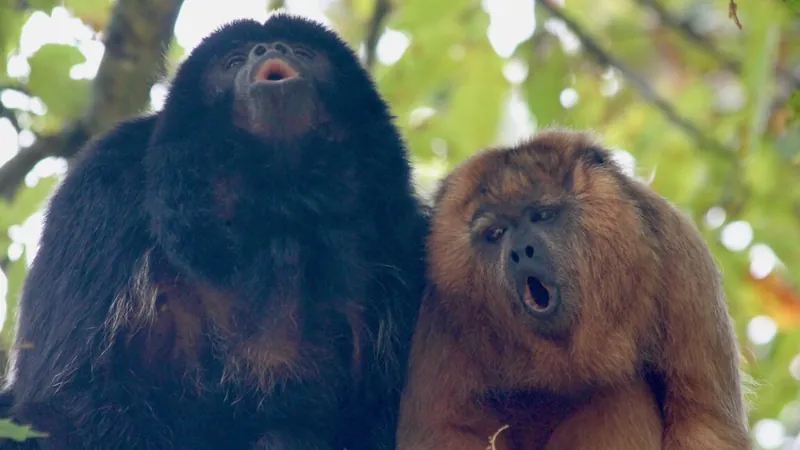
Monkeys Outsing Humans: Stunning Study Reveals They Yodel Better!
2025-04-03
Author: Ying
Recent research has unveiled a fascinating revelation: monkeys might just be better yodelers than humans! While humans have engaged in yodeling as far back as the 13th century—evidenced by Marco Polo's accounts of Tibetan monks using the vocal technique for long-distance communication—scientists have now discovered that certain species of monkeys in the lush rainforests of Latin America have their own unique take on this vocal art.
A groundbreaking paper published in the Philosophical Transactions of the Royal Society B highlights how various monkey species utilize what researchers are calling "ultra-yodels." These vocalizations feature "voice breaks" that make them surprisingly similar to human yodeling but boast a much wider frequency range. While human yodelers can reach changes in pitch over one octave, these monkey calls can surpass three octaves!
Bioacousticians, including Tecumseh Fitch from the University of Vienna, have been investigating the capabilities of non-human primate vocalizations, with previous studies revealing that many animals can create sudden pitch shifts. Interestingly, while humans have two distinct vocal registers—chest voice and head voice—monkeys possess a unique anatomical feature: thin, flexible vocal membranes above their vocal folds. This distinctive trait enables them to produce sounds that may not just mimic human yodeling but enhance their own communication.
The study examined various monkey species, such as the black and gold howler monkeys and tufted capuchins. Researchers utilized advanced methods like CT scans of monkey larynxes and live acoustic recordings to analyze their vocal capabilities. Findings indicated that these New World monkeys had evolved vocal membranes that significantly contribute to their ability to produce rapid frequency transitions.
According to co-author Jacob Dunn, an evolutionary biologist, this advanced yodeling ability is not just for show. “This could be critical in their complex social lives, facilitating diverse communication methods,” he pointed out. The ability to execute these "ultra-yodels" may serve functions ranging from attracting attention to enhancing social interactions.
As we explore the evolutionary adaptations of these monkeys, one can't help but wonder: could our own vocal limitations stem from our evolutionary journey? This groundbreaking research hints at a musicality in the animal kingdom that's both surprising and captivating, raising questions about how we understand communication across species.
So, the next time you hear a yodel, remember that it might just be a monkey surpassing our human efforts—yodeling into the jungle with their spectacular vocal prowess!



 Brasil (PT)
Brasil (PT)
 Canada (EN)
Canada (EN)
 Chile (ES)
Chile (ES)
 Česko (CS)
Česko (CS)
 대한민국 (KO)
대한민국 (KO)
 España (ES)
España (ES)
 France (FR)
France (FR)
 Hong Kong (EN)
Hong Kong (EN)
 Italia (IT)
Italia (IT)
 日本 (JA)
日本 (JA)
 Magyarország (HU)
Magyarország (HU)
 Norge (NO)
Norge (NO)
 Polska (PL)
Polska (PL)
 Schweiz (DE)
Schweiz (DE)
 Singapore (EN)
Singapore (EN)
 Sverige (SV)
Sverige (SV)
 Suomi (FI)
Suomi (FI)
 Türkiye (TR)
Türkiye (TR)
 الإمارات العربية المتحدة (AR)
الإمارات العربية المتحدة (AR)